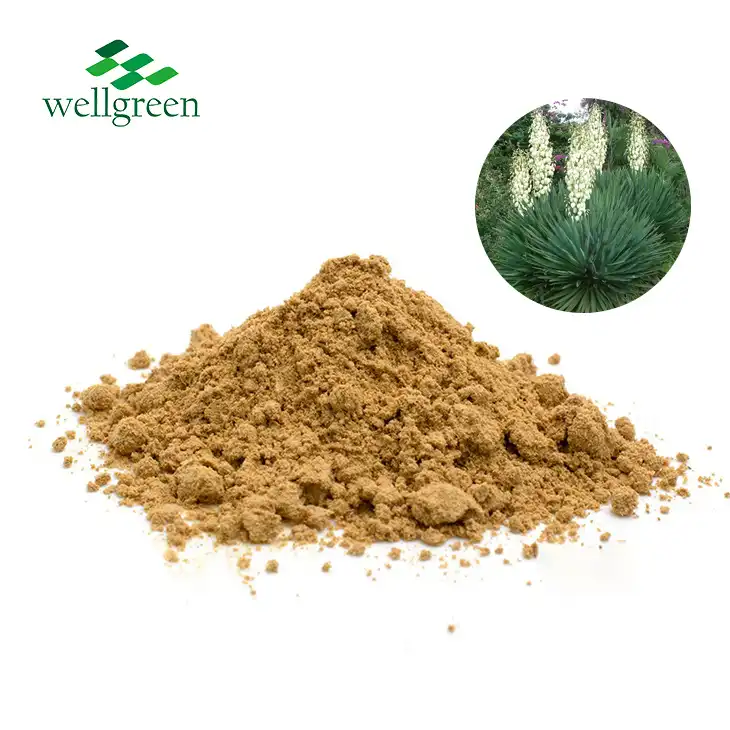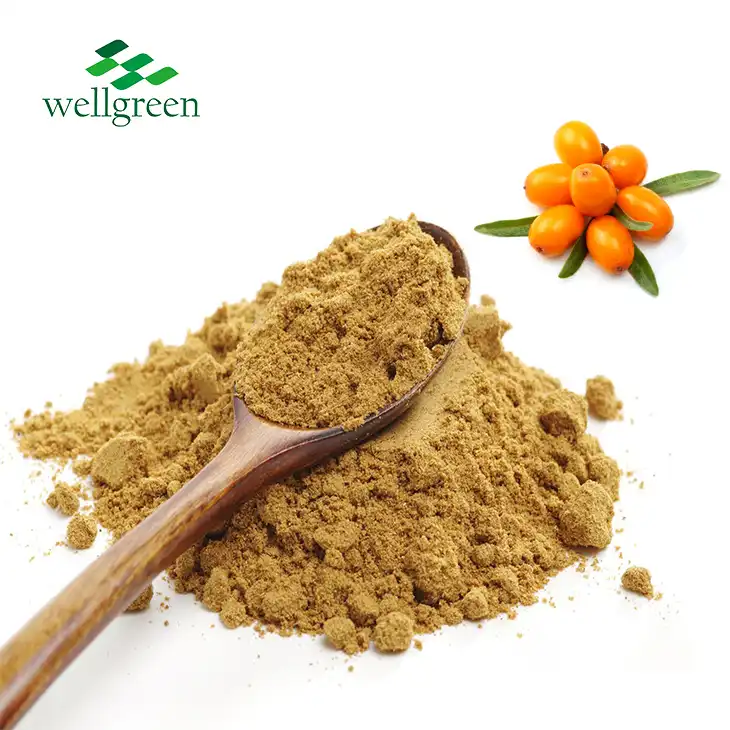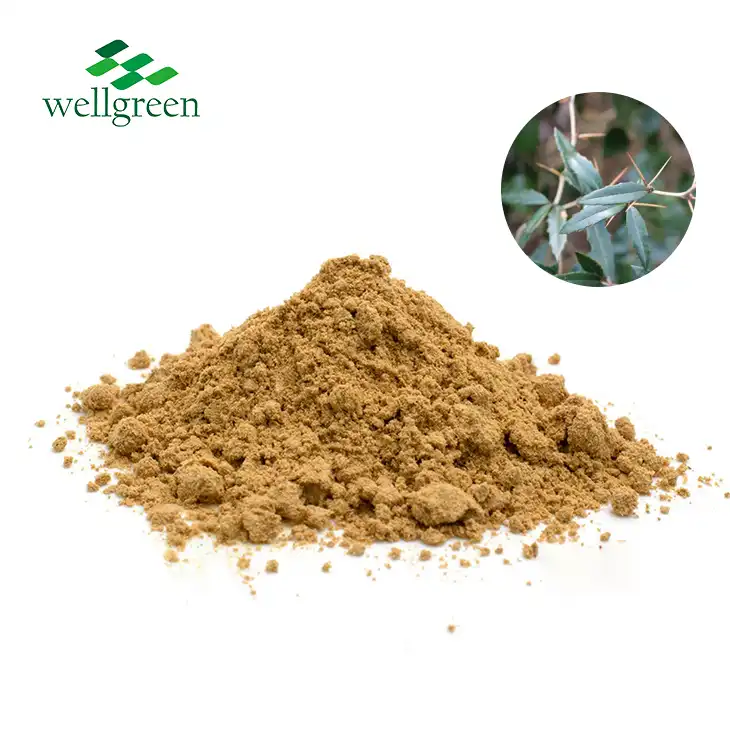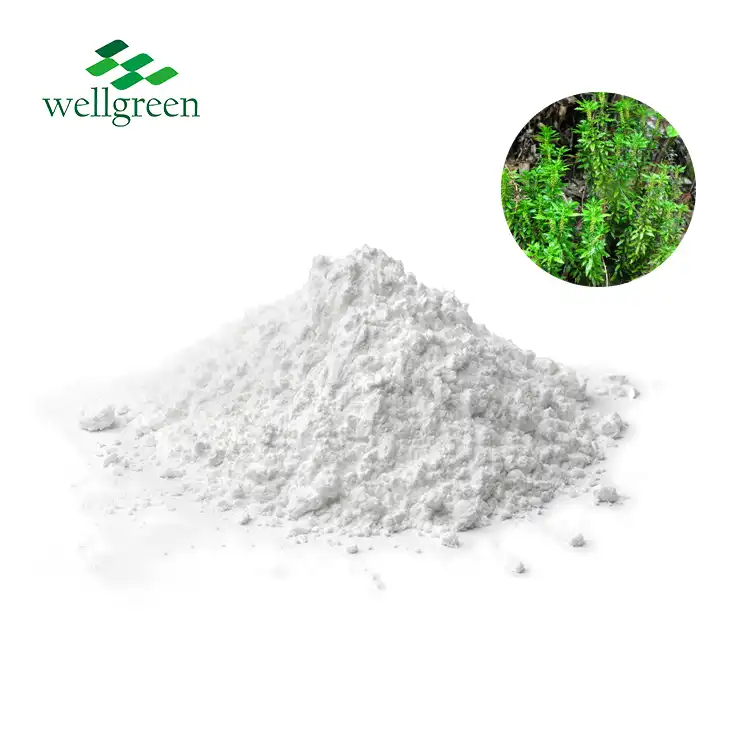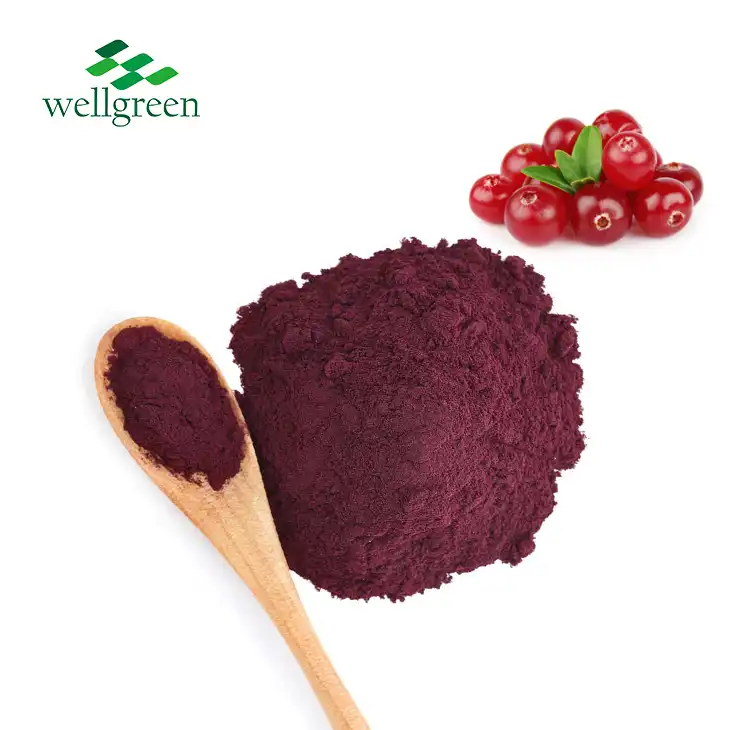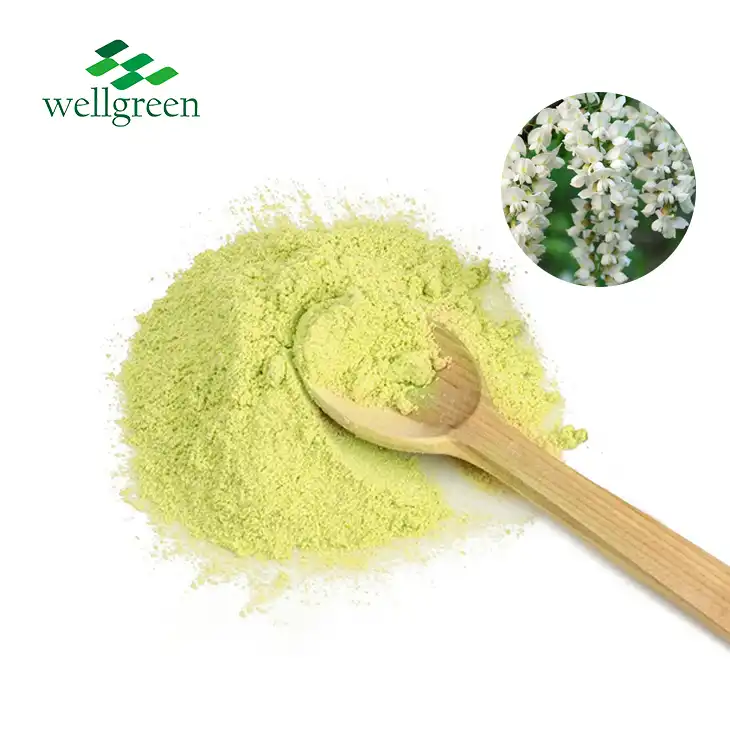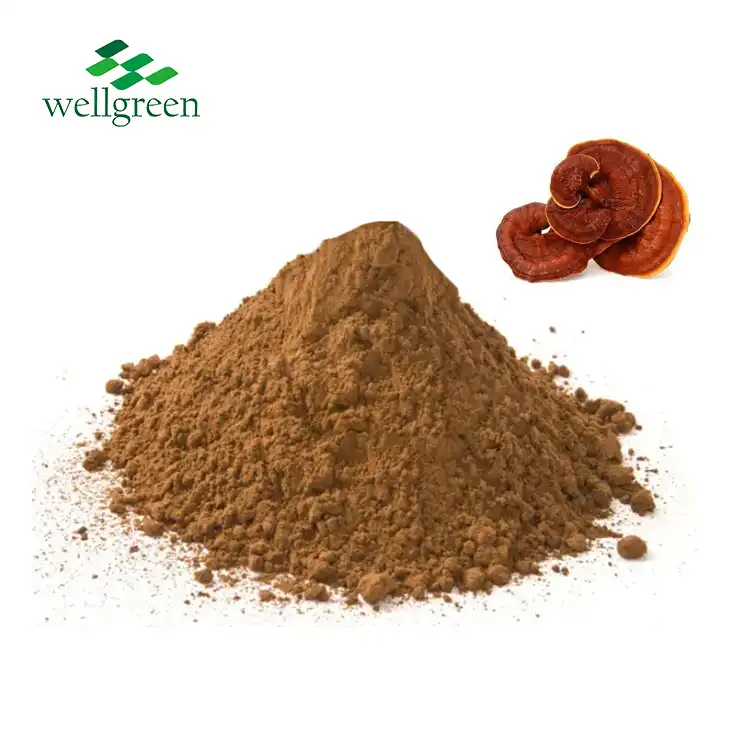Yucca Saponin
Latin Name: Yucca smalliana Fern.
Appearance: Brown Yellow Powder
Specification: 30%,60%,customized
Used Part: Whole plant of yucca
Sample: Free Sample Available
Test method: UV
Yucca Extract B50: 4-8mg.Complete test data can be provided
Certificates: ISO9001: 2015/ISO22000/Halal/Kosher/HACCP/FAMI-QS
- Fast Delievery
- Quality Assurance
- 24/7 Customer Service
Product Introduction
What is Yucca Saponin?
 Yucca extract is a product extracted from a unique natural plant in the desert region of North America. It contains major active ingredients such as saponins, polysaccharides and polyphenols. Due to its special physiological structure, Yucca saponin has a strong ability to combine harmful gases, which can not only improve the utilization of nutrients, but also reduce the emission of ammonia, hydrogen sulfide and other harmful gases, so as to improve the breeding environment of livestock and poultry, enhance the body's immunity, and improve the performance of animals. In addition, Yucca extract also has the effects of regulating intestinal microenvironment and anti-stress.
Yucca extract is a product extracted from a unique natural plant in the desert region of North America. It contains major active ingredients such as saponins, polysaccharides and polyphenols. Due to its special physiological structure, Yucca saponin has a strong ability to combine harmful gases, which can not only improve the utilization of nutrients, but also reduce the emission of ammonia, hydrogen sulfide and other harmful gases, so as to improve the breeding environment of livestock and poultry, enhance the body's immunity, and improve the performance of animals. In addition, Yucca extract also has the effects of regulating intestinal microenvironment and anti-stress.
Market Trends and Future Prospects:
In recent years, with the continuous expansion of the pet market, the current deodorization methods are roughly divided into spray deodorization, cat litter deodorization, staple food and care products deodorization, etc. Because pet owners have higher requirements for pet food safety, the application of natural and safe plant-based deodorization additive-Yucca extract in pet food is favored by pet food developers and manufacturers. Natural, safe and efficient deodorizing method, in order to provide a healthy and clean pet environment, in all kinds of pet food are added, seems to become the consistent choice of high-end pet food.
Detailed Specifications:
|
Test items and results |
||
|
Item |
Specification |
Result |
|
Assay(Yucca Saponin) |
≥ 30% |
32.57% |
|
Physical&Chemical Testing |
||
|
Appearance |
Light Yellow Powder |
Conforms |
|
Odor&Taste |
Characteristic |
Conforms |
|
Sieve Analysis |
98%Through 80 Mesh |
Conforms |
|
PH |
4.1 ± 0.2 (20% w/w solution) |
Conforms |
|
Water Solubility |
≥99% 1g in 100ml water |
Conforms |
|
Loss On Drying |
≤5.0% |
3.94% |
|
Microbiological Testing |
||
|
Total plate count |
≤1000cfu/g |
Conforms |
|
Yeast&Mold |
≤100cfu/g |
Conforms |
|
E.coli |
Not detected |
Not detected |
|
Salmonella |
Not detected |
Not detected |
|
Staphylococcus |
Not detected |
Not detected |
|
Shelf life and Storage |
2 Years. Cool & dry place. Keep away from strong light and heat. |
|
|
Conclusion |
Conform to Enterprise standard. |
|
Functions:
 1. Promote animal growth
1. Promote animal growth
Yucca extract can enhance the activity of digestive enzymes, improve the apparent digestibility and energy utilization efficiency of nutrients such as protein, increase the number of transporters, and improve the absorption capacity of small intestine. The results showed that Yucca extract could significantly improve the digestibility of crude protein, crude fat and crude fiber in the feed by ileum, thereby improving the feed utilization rate of broilers, increasing the average daily gain and the body weight at the end of the experiment, and there was a significant linear change with the dose within a certain dosage range.
2. Improve reproductive performance
The functional state of the reproductive system and the level of reproductive hormones in the body are the key factors affecting the reproductive performance of animals. VLCKOVA et al. found that Yucca extract can affect the proliferation and apoptosis of sheep ovarian cells, and affect follicle development by inhibiting ovarian production and releasing steroid hormones.
3. Antibacterial and anti-inflammatory
Saponins in Yucca japonica extract have glucocorticoid-like effects in animals. Resveratrol can inhibit the synthesis of inducible nitric oxide synthase (iNOS) by inhibiting nuclear factor-kB (NF-KB), and reduce the production of inflammatory factor nitric oxide (NO), both of which can play an anti-inflammatory role. Stress can easily cause inflammatory response in animal body or tissue. LUO et al. 4 found that dietary Yucca extract could alleviate the stress response and reduce inflammatory damage in broilers exposed to high temperature.
4. Improve immune and antioxidant properties
The immune ability and antioxidant function of animal body are closely related to body condition and disease injury. The activities of antioxidant enzymes, free radical clearance rate and immunoglobulin level in serum can reflect the antioxidant function and immune capacity of animals. In addition, Yucca yucca extract also affected the expression of antioxidant enzyme related genes (SOD, CAT, GSH-Px). The polyphenolic components in Yucca extract have good ability to scavenge free radicals and prevent free radical formation. Yucca extract can regulate humoral and cellular immunity, increase organ index of spleen and thymus, increase lymphocyte number, activate lymphocyte function, and increase immunoglobulin level in serum.
5. Improve the breeding environment
The waste gas and waste produced in the process of animal breeding can pollute the environment and affect the efficiency of breeding. Urease is a key enzyme for ammonia synthesis. The saponins in Yucca japonicum extract can effectively inhibit urease and reduce about 53% of ammonia emission in feces. In addition, saponins can improve the structure of intestinal microbial community, inhibit protein fermentation, reduce the concentration of ammonia nitrogen in intestinal contents, and directly bind to ammonia and hydrogen sulfide and other odor compounds, thereby reducing their levels.
Application of Yucca extract to reduce ammonia gas in pig house
"Salsaponin", also known as "seraponin" or "saponin", is a type of street soap. It mainly includes steroidal saponins (Sarsapogein, Smilagenin, Hecogenin) and free saponin. It is a bioactive substance extracted from Yucca species of Agavaceae, which grows in desert areas. It is considered to be one of the effective components in Yucca extract and has high biological activity. Recent studies have shown that sericoside in animal husbandry can reduce the ammonia concentration in the air of the livestock house, improve the environment of the livestock house, so as to increase the laying rate of laying hens, reduce the mortality caused by broiler ascites, improve the daily weight gain and feed utilization rate of growing and fattening pigs, reduce the occurrence of flatulence, and anti-mutation.
 1.The role of Yucca in improving the environment of livestock houses
1.The role of Yucca in improving the environment of livestock houses
In recent years, with the development of large-scale and intensive aquaculture, a large number of feces, urine, sewage and harmful gases have been produced, especially the use of chemical fertilizers, so that a large number of manure cannot be returned to the field, causing serious pollution to the environment. If these high-concentration feces, urine and sewage are not properly treated, they are bound to become the source of infectious diseases, parasitic diseases and zoonotic diseases in livestock and poultry.
Studies have shown that, in addition to ammonia, there are also hydrogen sulfide produced by the degradation of residual sulfur-containing amino acids, indoles produced by the degradation of excess tryptophan, and phenols produced by the degradation of aromatic amino acids and tyrosine in animal excreta, which seriously endanger the health of humans and animals.
2.Application in pig industry
The environmental pollution caused by pig production has attracted global attention. In some countries with a developed livestock industry, such as the Netherlands, Denmark and the United Kingdom, more in-depth studies have been carried out and regulations have been established to limit the amount of P and N excreted through pig manure urine to control the accumulation of these components in soil and water.
Amon et al. [9] fed 600 piglets and growing pigs (24d to 48d of age) with 65mg/kg sericoside in the diet for 60d. The results showed that the ammonia volatilization in the pighouse was reduced by 26%. The results showed that dietary supplementation of 120mg/kg sericoside could significantly reduce ammonia concentration (42.5% and 28.5%) and improve feed conversion rate (FCR), reduce morbidity and treatment cost in different farms in the Netherlands and France, respectively. Boumeg's experiment showed that the ammonia concentration in the barn decreased by 25% after 3 weeks and 85% after 6 weeks of using yucca saponin.
Jeon et al. fed 48 growing pigs (body weight 34kg)4ld with a diet supplemented with 2kg/t enzyme preparation, 20kg/t microecological promoter and 200g/t sericoside, respectively. The results showed that the enzyme preparations, microecological promoters and sericin could not only significantly promote the growth of pigs and improve the feed conversion rate (P<0.05), but also significantly inhibit the concentration of ammonia nitrogen and volatile fatty acids in pig feces and urine (P<0.01). At present our country many large - scale feed enterprises have applied Yucca.
Application Fields:
1. Agriculture: It is utilized in farming as a characteristic surfactant in pesticides and soil conditioners, improving the viability of agrochemicals and advancing soil wellbeing.
2. Additives for Animal Feed: It is added to creature feed details to further develop satisfactoriness, lessen smelling salts outflows in animals offices, and advance gastrointestinal wellbeing in creatures.

Wellgreen Technology:
More and more researches have been conducted on the application of Yucca yucca extract in rumination, and its effect has been recognized and trusted by more and more ruminant manufacturers and ruminant farmers. Yucca extract is a good choice in the context of environmentally friendly farming policies.
Wellgreen Technology is a leading manufacturer and supplier of high-quality Yucca saponin with a large inventory and complete certificates. We specialize in providing OEM and ODM services, offering one-stop standard service, fast delivery, tight packaging, and support for testing. For inquiries, please contact us at wgt@allwellcn.com.

Send Inquiry

